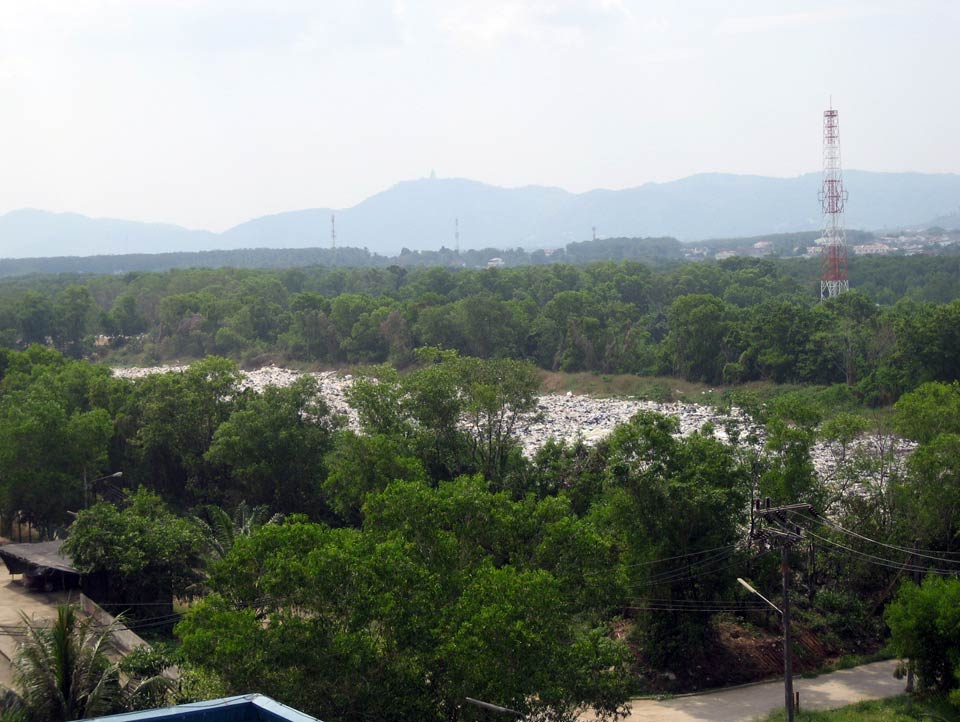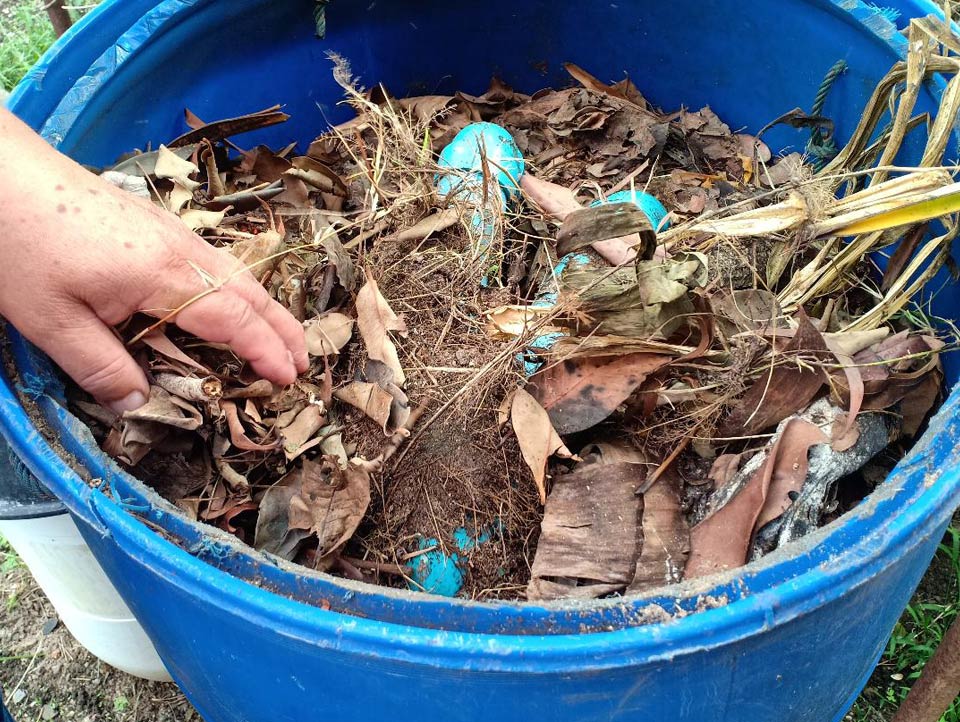Food-waste rescue and composting
“Today, an estimated one-third of all the food produced in the world goes to waste. And if food goes to the landfill and rots, it produces methane – a greenhouse gas even more potent than carbon dioxide.” – reference: https://www.worldwildlife.org
The problem: Nearly 60% of the waste that is delivered to the incinerator and landfill is made up of organic waste. A lot of energy is needed to burn organic waste because of its high water content. As the incinerator cannot burn all the rubbish it receives, the remaining amount is put into the landfill.
How we aim to reduce food ending up in the landfill:
Sustainable Maikhao Foundation works with the community and the Prince of Songkla University (Kathu Campus) in their Circular Economy Project.
We rescue prawn heads and squid innards and deliver them to a local fisherman who mixes it with left over vegetables to make non chemical fish food.
We are part of a network of locals who use the “compact box composter” provided by the university. We share our composting experience with the local and expat community and assist in the distribution of these composters and the support needed to get it started.
We also work with the team from the Phuket Environmental Foundation who assist in training our community on composting garden waste and food waste with another composting system.


Goals and expected impact:
We aim to reduce the amount of organic waste ending up at the incinerator and landfill. We encourage the community to turn their food waste into chemical free fertilizer which they can used to plant pesticide free vegetables in their gardens at home, at their hotels and at schools.